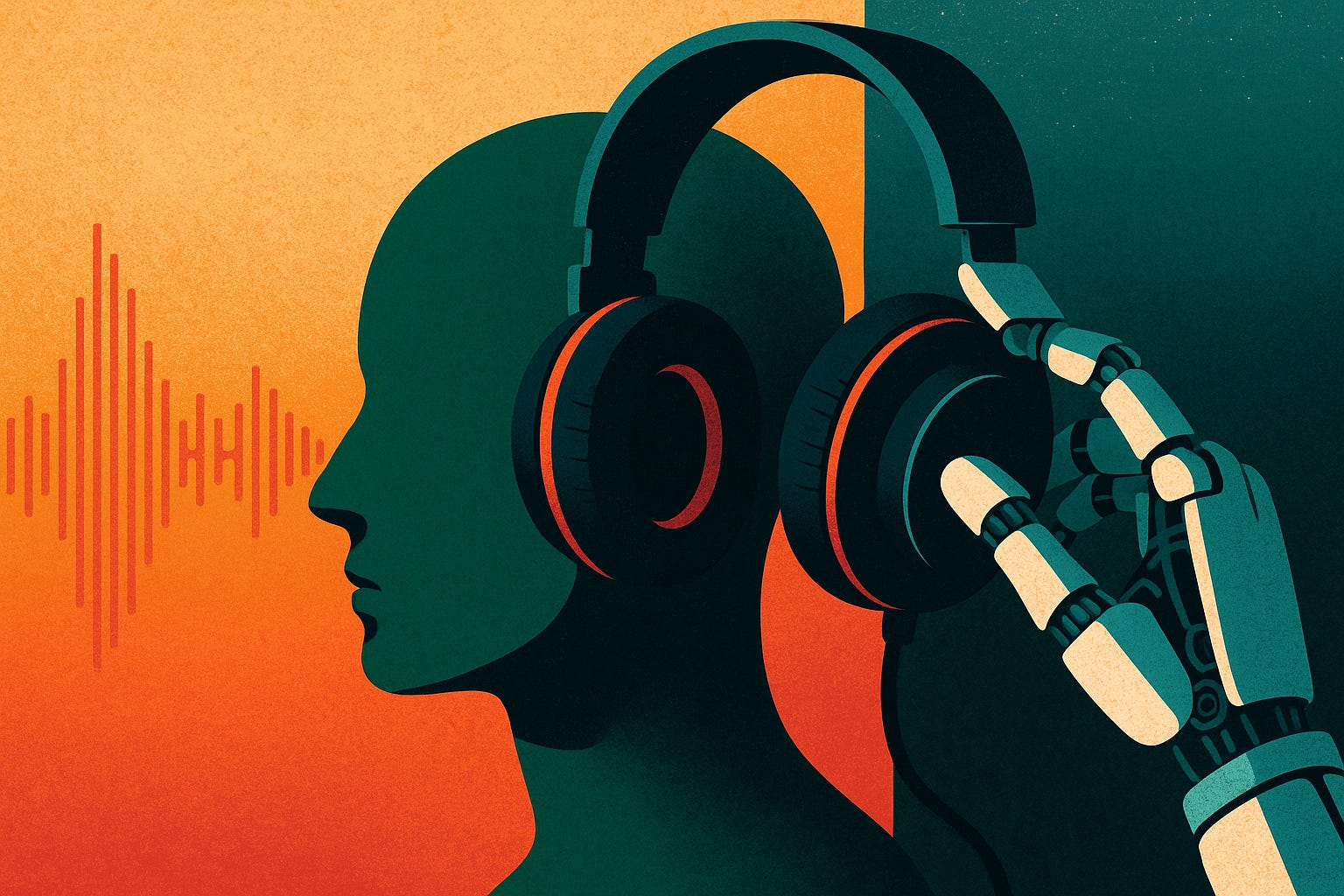machina.mondays // Unplugging the Muse: When Music No Longer Needs a Human Spark
If AI can create without feeling, are we still listening for meaning—or just the algorithm that moves us?
In this Issue: AI is no longer just remixing music — it’s redefining the rules. From BBC’s deepfaked Agatha Christie teaching writing, to Visa’s plan to let AI agents shop on your behalf, this issue tracks how AI is entangling itself with authorship, commerce, and emotion. We explore the Reddit experiment that blurred ethics and persuasion, the rise of spiritual delusions triggered by chatbots, and whether AI-generated music signals innovation or industry crisis. Plus: Toolstack returns with standout generative music tools.
The New Red Flag Act: How the Music Industry Fears Its Own Future
Imagine a world where every technological leap is met with a man holding a red flag, walking solemnly in front of progress to slow it down.
This was no metaphor—in 18…





